Introduction
Ubuntu for video editing is rapidly gaining traction among creative professionals, offering a powerful and cost-effective alternative to traditional video editing platforms. As an open-source operating system, Ubuntu provides users with a streamlined, customizable environment that enhances workflow and ensures stability. Whether you’re a beginner or an experienced video editor, Ubuntu’s flexibility and wide compatibility with popular video editing software make it an appealing choice. In this guide, we’ll explore the benefits of using Ubuntu for video editing, the best software options, and how to optimize your setup for a smooth editing experience.
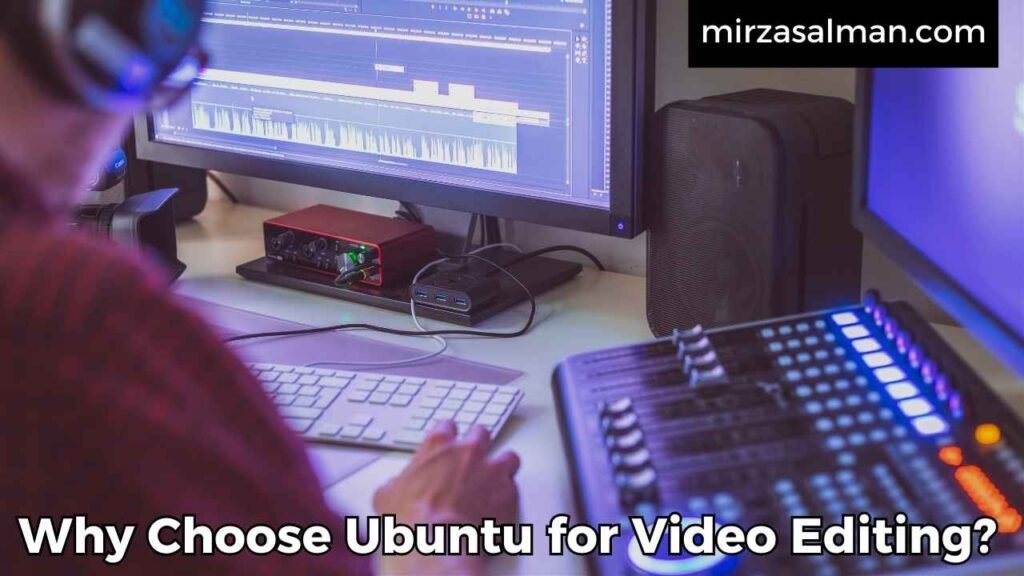
Why Choose Ubuntu for Video Editing?
Ubuntu has hastily received recognition as a go-to working system for innovative experts, and video editors are no exception. With its open-supply nature and robust overall performance, Ubuntu offers a dependable environment for video editing. Many users appreciate its versatility, cost-effectiveness, and the truth that it’s unfastened to use. Ubuntu is designed to be intuitive, making it an great choice for each novices and skilled editors.
Moreover, Ubuntu’s developing community offers tons of guide, tutorials, and assets. This open-source OS offers customers with an endless listing of customization alternatives, permitting video editors to tailor their workstations in line with their needs. It’s a effective alternative to different extra high priced working systems that may often feel bloated with pointless functions.
The Benefits of Ubuntu for Video Editing
One of the main reasons video editors flock to Ubuntu for video modifying is its balance and performance. Ubuntu offers a streamlined enjoy, minimizing gadget crashes and overall performance lags which might be regularly skilled on different systems. The running system’s lean structure lets in video modifying software to run easily, making it less difficult to address useful resource-heavy duties like rendering.
Additionally, Ubuntu supports a whole lot of expert video modifying software program. Whether you are the usage of open-supply equipment like Shotcut or more advanced alternatives like DaVinci Resolve, Ubuntu has you blanketed. This compatibility guarantees that video editors can get admission to the software program they need without having to worry approximately compatibility problems.
The Best Video Editing Software for Ubuntu
Ubuntu’s flexibility way that customers can without problems install diverse video enhancing software. Some of the exceptional open-source and paid options available encompass Kdenlive, OpenShot, Shotcut, and DaVinci Resolve. Each of these tools offers various capabilities which can be perfect for video editing obligations, from simple trimming to professional-grade colour grading.
Kdenlive, for example, is a powerful non-linear video editor that comes packed with advanced features like multi-music editing and customizable consequences. Shotcut, another popular open-supply device, is best for beginners, providing a person-pleasant interface with all of the basic capabilities wished for video editing. For extra expert editors, DaVinci Resolve is a top class desire that gives enormous coloration correction equipment and multi-digicam editing.
How to Set Up Ubuntu for Video Editing
Setting up Ubuntu for video editing is straightforward. First, ensure you have got Ubuntu mounted on your gadget. Once mounted, it’s crucial to set up a right video modifying surroundings by using installing the necessary software. You can easily set up open-source video enhancing software program thru Ubuntu’s Software Center, or use command-line gear like apt-get for extra advanced equipment.
Another vital step is ensuring that your hardware, which include photos cards and storage drives, is well matched with Ubuntu. Video editing relies heavily on processing power, so upgrading your machine’s RAM, GPU, and garage can notably improve your workflow. Ensuring that Ubuntu recognizes these components will help you get the great feasible performance.
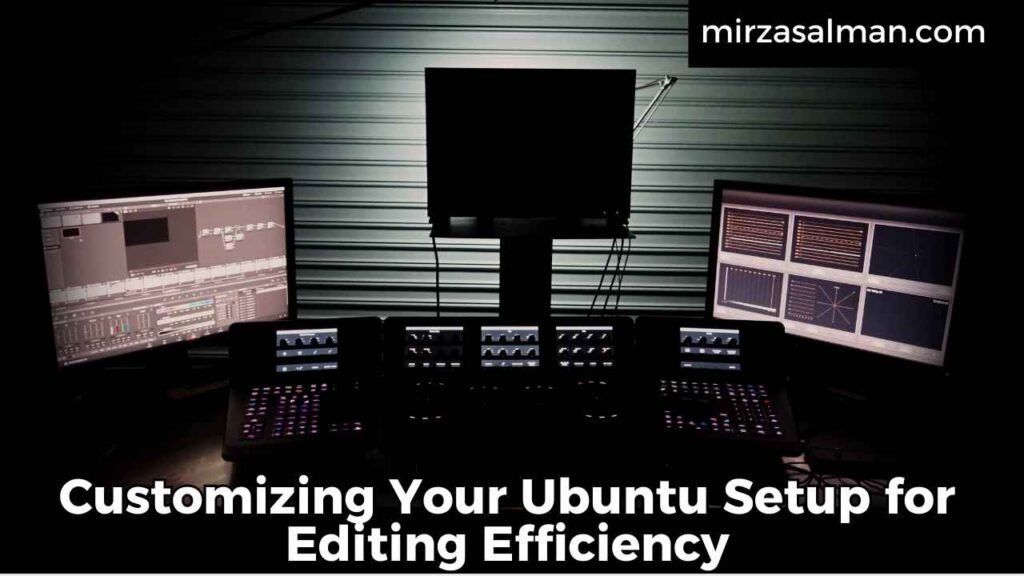
Customizing Your Ubuntu Setup for Editing Efficiency
To maximize your enhancing performance on Ubuntu, you ought to customise your workspace. Start by using organizing your desktop to fit your editing desires. Use workspaces to separate extraordinary tasks, along with one for video enhancing and every other for report management or research. By preserving your surroundings organized, you may stay centered to your innovative process without distractions.
Consider also customizing keyboard shortcuts for faster enhancing. Many video modifying packages can help you installation customized hotkeys, which could make the editing system quicker and extra intuitive. Additionally, Ubuntu’s open-supply nature allows you to install numerous laptop environments, so that you can pick out one which first-class fits your workflow.
Optimizing Ubuntu for Video Editing Performance
Ubuntu’s overall performance can be tweaked to better cope with video enhancing responsibilities. To get the maximum from your machine, start by way of disabling useless startup packages and offerings that eat resources. You can also boom your gadget’s digital memory to handle large video files more successfully.
Installing proprietary drivers for your graphics card also can come up with a vast performance boost. For example, in case you’re the usage of an NVIDIA GPU, the proprietary drivers to be had on Ubuntu can offer greater support for CUDA, which quickens video rendering and processing duties. By optimizing Ubuntu’s settings, you’ll make sure a smoother video modifying revel in.
Choosing the Right Hardware for Ubuntu Video Editing
While Ubuntu is lightweight, video editing continues to be a resource-extensive project that calls for powerful hardware. For an highest quality video enhancing enjoy, you have to prioritize upgrading your CPU, GPU, and RAM. A multi-core processor is important for clean editing, mainly when managing 4K or excessive-definition content.
When selecting a pics card, make sure it is like minded with Ubuntu. NVIDIA and AMD each provide terrific help for Linux users, however constantly test for compatibility before making a purchase. Additionally, making an investment in fast garage, inclusive of SSDs, will significantly enhance your video enhancing workflow, decreasing load instances and rushing up rendering tactics.
Troubleshooting Common Ubuntu Video Editing Issues
As with any machine, issues may stand up at the same time as using Ubuntu for video modifying. Some commonplace problems consist of lagging playback, video rendering mistakes, or software program crashes. Fortunately, most of those troubles have easy solutions. If you enjoy lag throughout video playback, consider decreasing the resolution of your video timeline, mainly when modifying excessive-decision footage.
If you encounter crashes or instability, ensure your software is updated to the latest version. Also, check your gadget logs for any errors related to hardware or software program conflicts. The energetic Ubuntu community is a extremely good useful resource for troubleshooting, and also you’ll frequently find solutions to common troubles shared via different customers in on line boards.
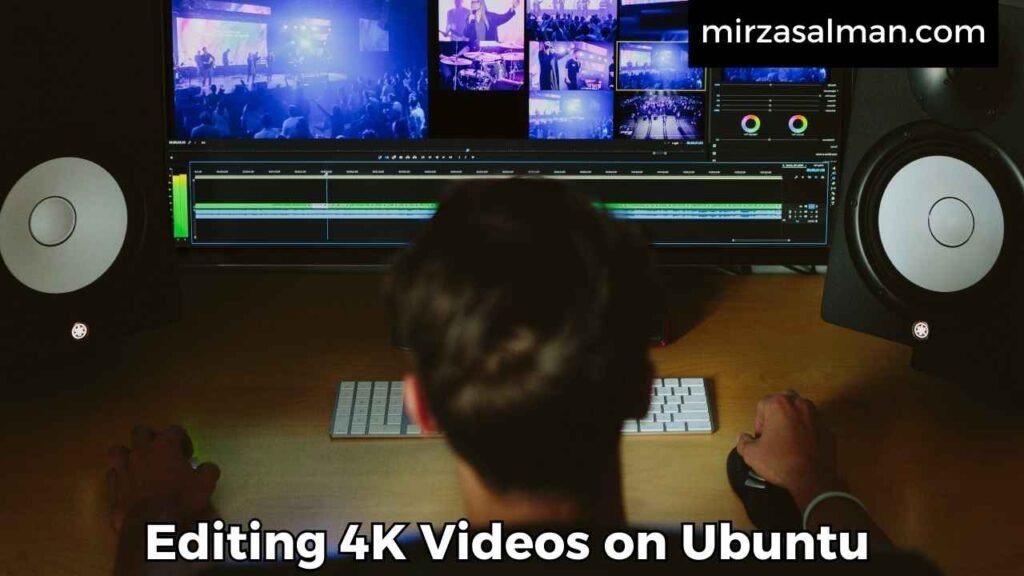
Editing 4K Videos on Ubuntu
Editing 4K motion pictures calls for massive device resources, however Ubuntu can manage it well with the proper setup. The first step is ensuring that your hardware meets the needs of 4K video editing. Having enough RAM (as a minimum 16GB) and a effective GPU are essential for smooth performance whilst working with 4K pictures.
On the software side, each DaVinci Resolve and Kdenlive are able to coping with 4K video modifying. However, you can need to decrease playback excellent for smoother modifying if your system is not top-of-the-line. By optimizing your software settings and workflow, you can efficiently edit 4K footage on Ubuntu with out extensive lag or performance dips.
Exporting and Rendering Videos on Ubuntu
Once your video modifying is whole, the following step is exporting and rendering. On Ubuntu, most enhancing software program supports a extensive variety of file codecs and export settings, permitting you to tailor your output to particular wishes. When exporting, recall the stability among video excellent and file size, especially in case you’re operating with high-definition or 4K motion pictures.
Rendering instances can vary primarily based in your device’s hardware and the complexity of the task. Make certain to close unnecessary applications at the same time as rendering to avoid slowing down the process. Additionally, using hardware acceleration alternatives like CUDA or OpenCL (relying for your GPU) can drastically lessen rendering instances, improving your common performance.
The Future of Ubuntu for Video Editing
The future of Ubuntu for video enhancing appears promising. As extra software builders release Linux versions of their gear, Ubuntu is becoming an an increasing number of viable option for experts. With improvements in open-supply video enhancing software and better hardware assist, Ubuntu is fast catching as much as other systems like Windows and macOS.
Moreover, Ubuntu’s developing community means that extra resources, tutorials, and plugins becomes to be had, further improving the platform’s capabilities for video editors. The open-source nature of Ubuntu guarantees that it’ll hold to adapt, making it an first rate preference for each novices and seasoned video editors seeking out a price-effective, efficient solution.
Also Read: How Explosion Green Screen Bring the Action 2024
Conclusion
Ubuntu is an tremendous desire for video enhancing, imparting a huge variety of advantages for both beginners and skilled specialists. It provides a strong, customizable, and resource-efficient platform for modifying films. With the proper software program and hardware, Ubuntu can handle the entirety from basic edits to complex 4K video manufacturing.
While there can be a learning curve for the ones new to Linux, the benefits of the use of Ubuntu for video enhancing are simple. The running system’s overall performance, versatility, and value-effectiveness make it a worthy alternative to different video modifying structures. If you’re seeking to dive into video editing with out breaking the financial institution, Ubuntu is truly well worth considering.
FAQ About Ubuntu For Video Editing
Q1: Is Ubuntu good for video editing?
Ans: Yes, Ubuntu is excellent for video editing, offering stability, performance, and compatibility with many editing tools. It’s an ideal choice for those seeking a free, customizable, and resource-efficient platform.
Q2: Which Linux OS is best for video editing?
Ans: Ubuntu is often considered the best Linux OS for video editing due to its wide software support, user-friendly interface, and extensive community support. Other popular choices include Fedora and Debian for specific editing workflows.
Q3: Can I do video editing in Linux?
Ans: Absolutely! Linux supports many powerful video editing tools like Kdenlive, Shotcut, and DaVinci Resolve, making it a strong option for both beginner and professional video editors.
Q4: What is the most popular video editor for Ubuntu?
Ans: Kdenlive is one of the most popular video editors for Ubuntu, known for its robust features, intuitive interface, and open-source flexibility. Other popular choices include DaVinci Resolve and OpenShot.
Q5: How much storage is needed for video editing?
Ans: For smooth video editing, at least 500GB to 1TB of storage is recommended. High-resolution projects, especially 4K, require ample space to store footage, temporary files, and rendered projects.
Q6: What are the rules of video editing?
Ans: Basic rules of video editing include maintaining a clear narrative, ensuring smooth transitions, balancing audio levels, and keeping footage concise to engage viewers. Effective pacing and a consistent visual style are also essential.
Q7: What is video editing good for?
Ans: Video editing is valuable for creating professional-quality content, storytelling, marketing, and personal projects. It allows creators to polish footage, add effects, and communicate visually, making it essential in digital media production.
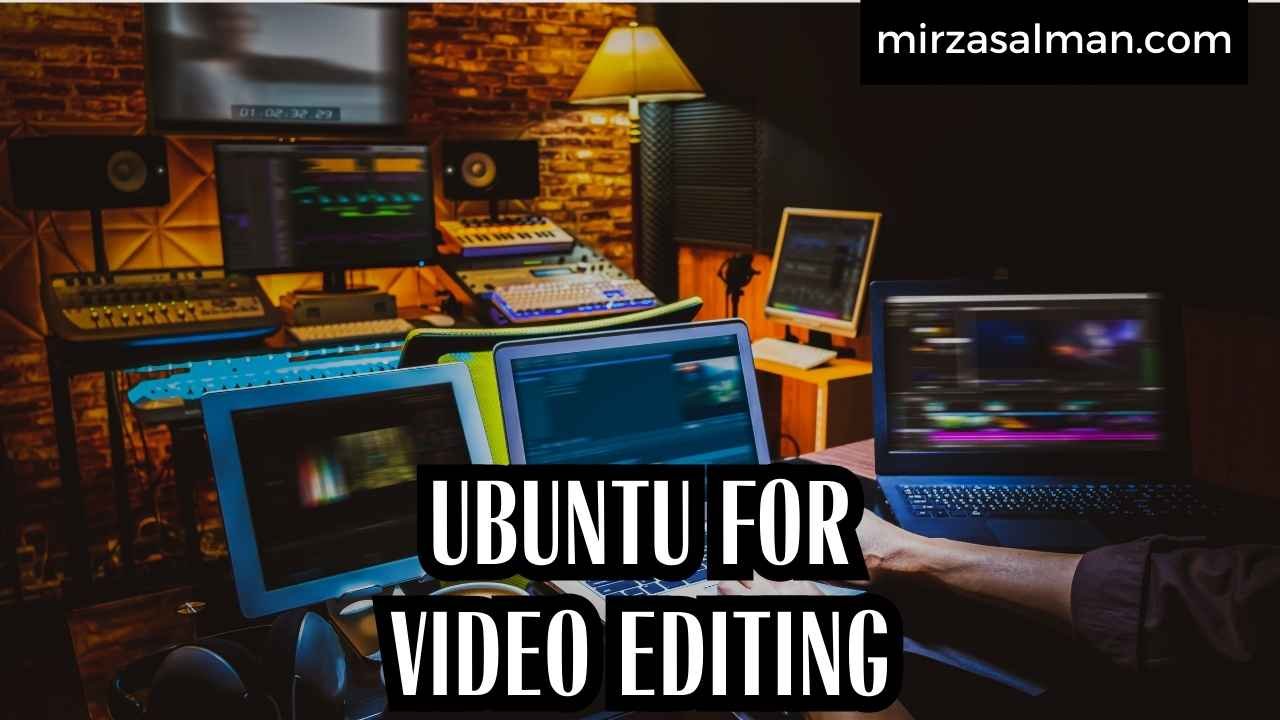
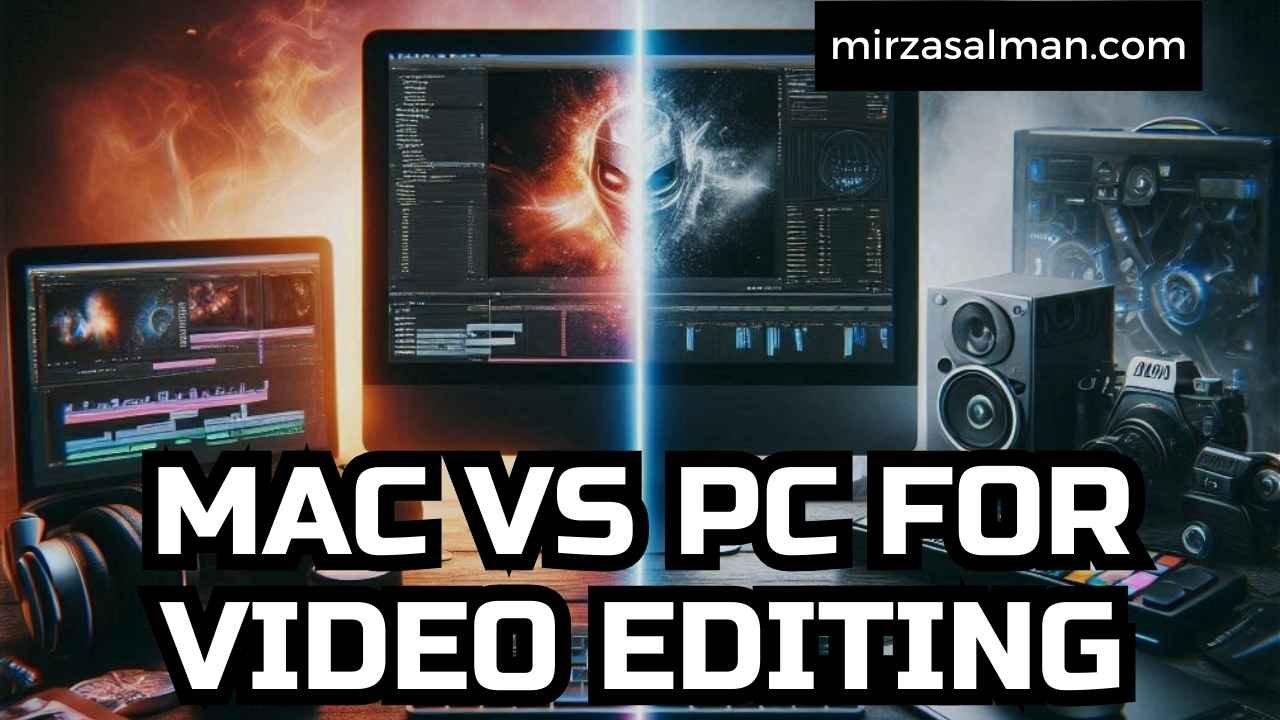
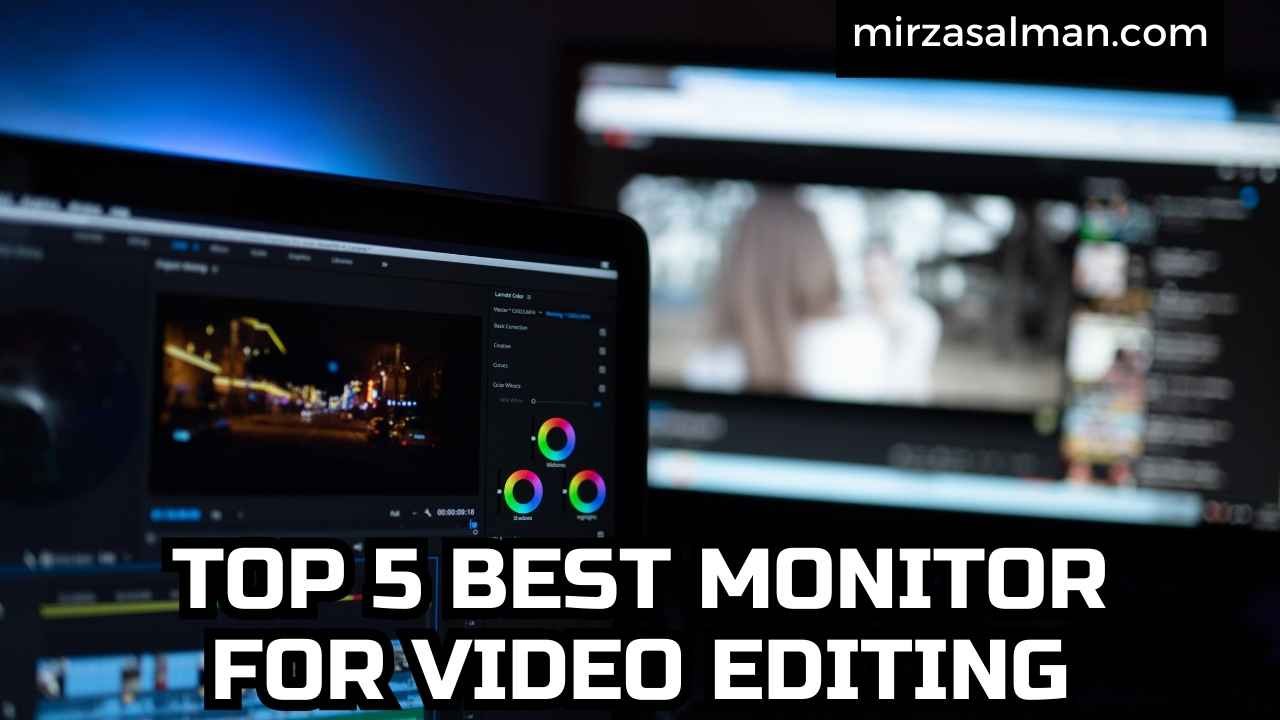
Pingback: Artista Pirata Adobe Photoshop: A Complete Guide 2024 - Mirza Vfx